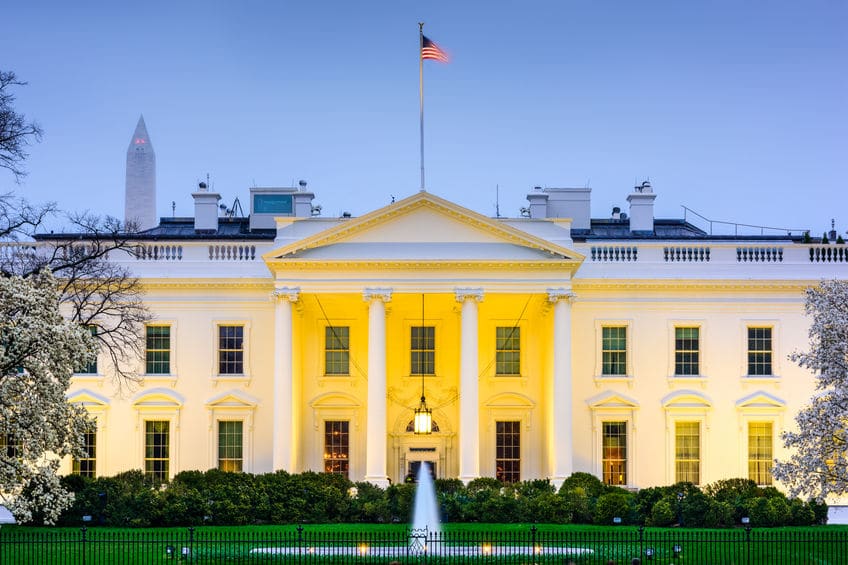Yesterday was the last day of the Democratic National Convention in Chicago, and we are now just over 70 days away from the U.S. elections that will determine a new President and the composition of Congress.
One of key things we do for clients at LNW is to provide them with perspective and context for major economic and political events. And so yesterday, we hosted a client webinar with Michael Townsend, Managing Director, Legislative and Regulatory Affairs at Charles Schwab & Co. With more than 30 years of Washington experience, Michael analyzes legislative, regulatory, and political developments to determine how they would affect individual investors, retirement plan participants, and investment advisers.
Michael started with the many good reasons why we are seeing higher unpredictability, anxiety and volatility this election cycle.
— Split Congress with razor thin margins in both House and Senate
— Unprecedented distrust of institutions (Congress, Supreme Court)
— U.S.-China relations
— Two ongoing wars (Ukraine and Israel-Hamas) with no clear resolution
— Uncertain U.S. and global economic outlook amid inflation worries, central bank decisions
— Unusual election cycle, including historically late change in Presidential candidate; assassination attempt.
Some Key Insights from Townsend Talk
- The U.S. Presidential race is likely to be very close, assuming no major developments between now and November 5. The “unenthusiastic voters” are the biggest wild card, not so much voters who are undecided. Unenthusiastic voters are people who are not happy with either Harris or Trump. Feeling disgruntled, they may just sit out the election instead of voting for what they perceive to be the lesser of two bad choices.
- The battle for Congress matters more to the markets than who is elected President. According to Townsend’s analysis, the Senate races currently favor Republicans being in control of the Senate, while Democrats are likely to control the House. Interestingly, the House and Senate have NEVER flipped in opposite directions during a Presidential election year, but this could happen in 2024. In 2024, this would mean November races resulting in a Democratic majority in the House and a Republican majority in the Senate.
- Historical data indicate the market does not much care about the circus surrounding Presidential elections or who wins. U.S. stocks have had only four down years during Presidential elections: 1932, 1940, 2000 and 2008. Each of those years, noted Townsend, were years of economic upheaval or crisis, so the election was not the cause of the sinking market.
Stock market performance during the three months before a Presidential election (up favoring incumbents, down favoring challengers) has predicted 20 out of the last 24 elections. Historically (1928-2023), the stock market has returned 7.5% on average during Presidential election years but it has done even better the year before the election (13.9%).
- While the 2024 election will be very partisan/emotional, the outcome should not drive financial and investment decisions. Proof of the benefits of ignoring politics while investing was a chart Michael presented showing $10,000 invested in 1961. If kept invested, that $10k would today be $5.12 million. Had the investor instead pulled out of the market during Democratic administrations and invested only during Republican ones, the result would be just $102,293. And if favoring Democratic admins and boycotting Republicans the result would be $500,476.
- Next year is likely to bring two major showdowns in Congress:
— U.S. debt-ceiling negotiations, most likely in spring 2025, as the temporary increase in the debt ceiling expires and Congress is forced to cut a deal to avoid a U.S. government default. Michael noted that so far, the level of U.S. government debt has not had an impact on markets.
— A “gigantic tax fight,” as some of the key tax cuts in the 2017 Tax Cuts and Jobs Act are due to expire at the end of 2025, unless renewed by Congress. Among these is the current federal tax exclusion recently at $13.6 million per person. If this is not renewed, the exclusion could be cut virtually in half, where it was back in 2017.
Michael noted that changes in government policy usually take quite a while to propose, run through Congress and implement. So it is usually not wise to make pre-emptive moves in an investment portfolio based on potential policy changes that may not materialize or occur at a slow pace.



